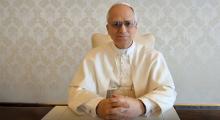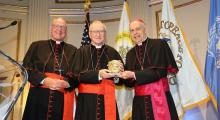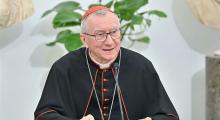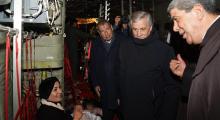Issued by the Catholic Center for Studies and Media - Jordan. Editor-in-chief Fr. Rif'at Bader - موقع أبونا abouna.org
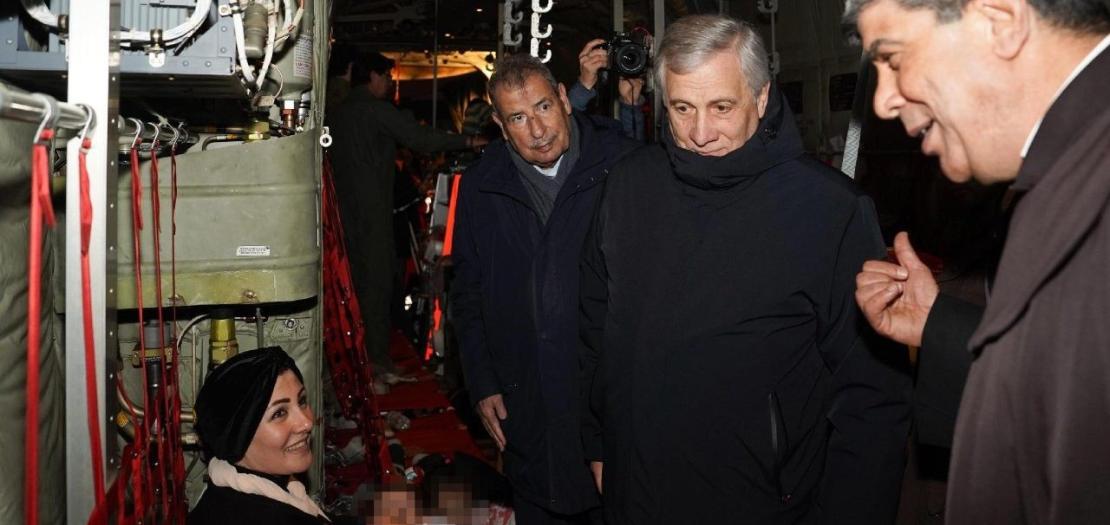
Small golden earrings soften four-year-old Zeina’s face, which is marked by illness. They are the only thing she managed to bring with her while fleeing the bombs in Gaza. Since last February, she has been living with her mother Manar and her two-year-old sister Dana at Rome’s Umberto I Polyclinic, in the pediatric oncology ward. We greet her from a few meters away—her immune system is too weak for us to come closer—but even though she doesn't know us, she waves and blows kisses. This all takes place under the watchful eyes of the medical staff, who care for these children with loving attention and professionalism.
With one eye on Dana, the children’s mother, Manar Farhat Murtaja, 29, tells me: “We’ve been here for four months, I haven’t left this place at all. We eat and sleep all three of us in this room. We made it to Rome thanks to a humanitarian corridor. Zeina is in critical condition. She was already sick while we were in Gaza, but there was no way to treat her, or even to find out what illness she had. The nearest hospitals were destroyed and there was no way to get treatment. The few facilities still operating gave priority to people pulled from the rubble, in immediate danger of death. For months we didn’t know what illness Zeina had, and we lost precious time in fighting the tumor. We traveled 3,000 kilometers to get here, even though just outside Gaza there are hospitals that could have treated my daughter. My husband wasn’t allowed to come with us, and this is such a difficult situation here, one that would be hard for anyone, even in normal conditions. I manage to speak with my husband sometimes by phone. We’ve lost everything—our house is gone, and so is my father. He was killed by Israeli bombing.”
A convoy of police cars stops outside the entrance to the pediatric ward. A woman steps out and quickly outpaces her security team, heading up the stairs toward the room where Manar, Zeina, and little Dana are staying. The woman is Varsen Aghabekian, Foreign Minister of the State of Palestine. “I came to Rome to attend the inaugural mass of Pope Leo XIV, but my trip wouldn’t have felt complete if I hadn’t come to visit my fellow Palestinians.”
She is accompanied by the Palestinian ambassadors to Italy and to the Holy See, who bring toys and sweets for the girls, and also for another young patient from Gaza, Saied, who is in the room next door with his mother. Mana, on the other hand, receives a small gift from your correspondent: a bag of za’atar, the thyme-based spice used throughout Palestine.
“Visiting these little girls is also a tribute to the new Pope, who began his service with the word ‘Peace’,” says the Foreign Minister, who is Christian. “It’s both paradoxical and absurd to say that these children, despite their serious condition, are actually the lucky ones, compared to the thousands of children who have been killed in Gaza. Forty in just the last three days.”
“We are very grateful to the Italian government for the welcome it has given to these children and their mothers,” Aghabekian continues. “Italy is the European country that has shown the most solidarity in this tragedy—nearly 200 children have been received here. Only Egypt, Qatar, and a few other Arab countries have taken in similar numbers.”
While we're speaking, a video call arrives from Jerusalem. Another visitor joins virtually: Father Ibrahim Faltas, who worked hard to set up the humanitarian corridors which brought little Zeina to Italy. “Now we must discuss another important issue with my Italian counterpart, Anotnio Tajani,” Aghabekian says: “residence permits for those who have been discharged from hospitals and obviously cannot return to Gaza. Also, family reunification for the fathers who remained behind.”
The minister passes along greetings and well-wishes from President Mahmoud Abbas, from Ramallah. “I’m almost 30 years old and had never left Gaza. I never imagined the first time would be to come to Italy for my daughter’s treatment. I would have been happy just to see Jerusalem for the first time—it’s only 60 kilometers from where we lived, but Al-Quds was a dream for us,” Manar says, her eyes shining, as Zeina continues to wave and blow kisses from her hospital bed.



